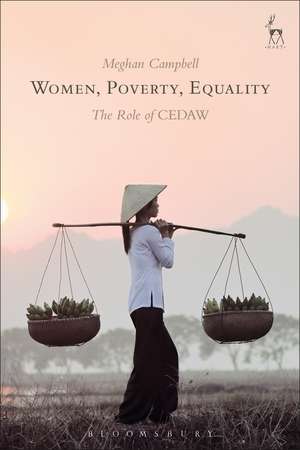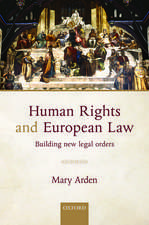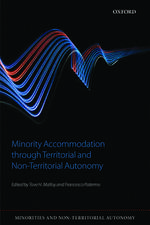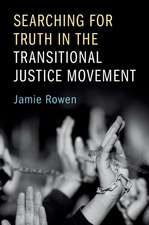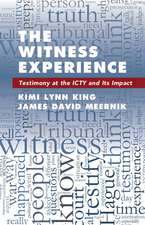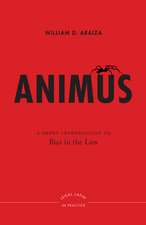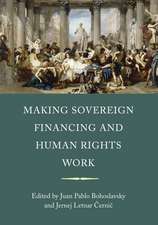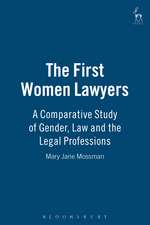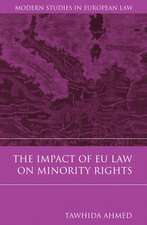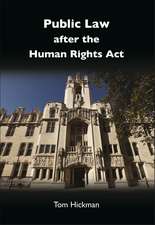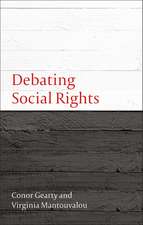Women, Poverty, Equality: The Role of CEDAW
Autor Meghan Campbellen Limba Engleză Paperback – 24 iun 2020
| Toate formatele și edițiile | Preț | Express |
|---|---|---|
| Paperback (1) | 239.59 lei 6-8 săpt. | |
| Bloomsbury Publishing – 24 iun 2020 | 239.59 lei 6-8 săpt. | |
| Hardback (1) | 512.69 lei 6-8 săpt. | |
| Bloomsbury Publishing – 7 feb 2018 | 512.69 lei 6-8 săpt. |
Preț: 239.59 lei
Preț vechi: 306.72 lei
-22% Nou
Puncte Express: 359
Preț estimativ în valută:
45.84€ • 47.87$ • 37.86£
45.84€ • 47.87$ • 37.86£
Carte tipărită la comandă
Livrare economică 15-29 aprilie
Preluare comenzi: 021 569.72.76
Specificații
ISBN-13: 9781509939480
ISBN-10: 1509939482
Pagini: 328
Dimensiuni: 156 x 234 x 20 mm
Greutate: 0.45 kg
Editura: Bloomsbury Publishing
Colecția Hart Publishing
Locul publicării:London, United Kingdom
ISBN-10: 1509939482
Pagini: 328
Dimensiuni: 156 x 234 x 20 mm
Greutate: 0.45 kg
Editura: Bloomsbury Publishing
Colecția Hart Publishing
Locul publicării:London, United Kingdom
Caracteristici
This book offers a rigorous interpretation of the Convention on the Elimination of all Forms of Discrimination Against Women to Address Gender-Based Poverty.
Notă biografică
Meghan Campbell is a Lecturer in Law at the University of Birmingham and Deputy-Director of the Oxford Human Rights Hub.
Cuprins
Part I1. Mapping the Problem I. Defining Gender-Based Poverty II. Gender-Based Poverty as an Obstacle to Human Rights III. The Gap in the International Human Rights Framework IV. The Promise of CEDAW in Addressing Gender-Based Poverty V. Mapping the Solution: An Evolutionary Interpretation of CEDAW VI. Conclusion 2. The Drafting of CEDAW I. Understanding the Past II. The History of CEDAW III. Mapping Gender-Based Poverty in the Travaux Préparatoires IV. Explaining CEDAW's Silence V. Conclusion 3. Strategies for Interpreting CEDAW I. The Art of Interpretation II. The Interpretative Role of UN Human Rights Bodies III. Gender-Based Poverty and the UN Human Rights Bodies IV. Conclusion 4. Interpreting Gender-Based Poverty into CEDAW I. Potential Interpretations of CEDAW II. A Comprehensive Interpretation: Equality and Non-Discrimination in CEDAW III. Nature of the State's Obligations IV. Conclusion Part II5. The Committee and Gender-Based PovertyI. CEDAW's Accountability Structure II. Mapping the Committee's Approach to Gender-Based Poverty III. Evaluative Discussion IV. Conclusion 6. The Working Methods of the Committee I. Mapping Gender-Based Poverty and the Committee II. A Case Study on the Committee's Working Methods and Gender-Based Poverty III. Reforming the Periodic Reporting Process IV. Conclusion 7. Evolutionary General Recommendations I. The Purpose of General Recommendations II. Evolutionary General Recommendations III. Conclusion 8. Envisioning Gender-Based Poverty in CEDAW I. Introducing Gender-Based Poverty into CEDAW II. A New Interpretation: The Legal Basis for Interpreting Gender-Based Poverty into CEDAW III. Contextualising Gender-Based Poverty in CEDAW IV. Conclusion
